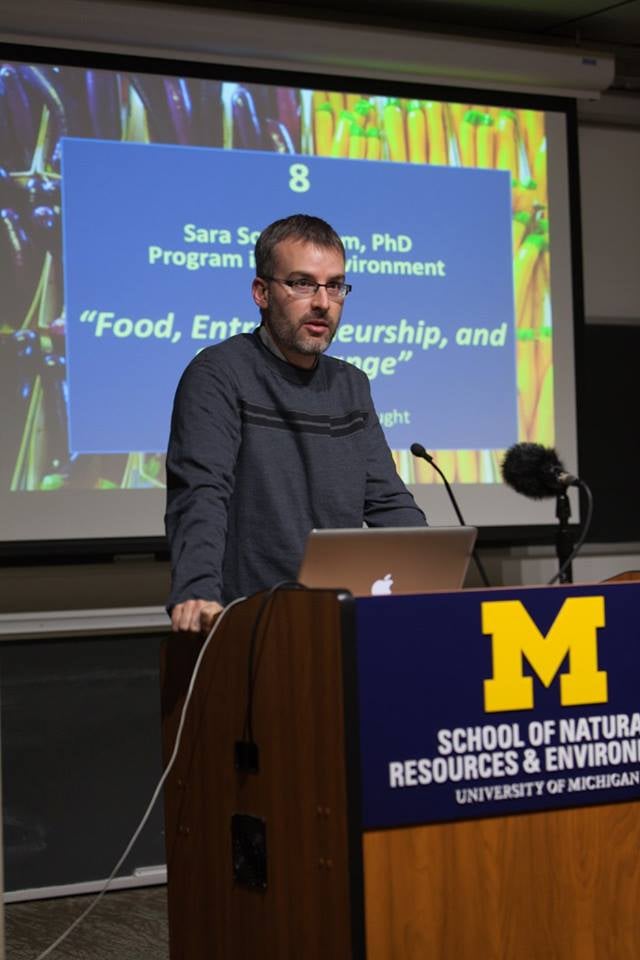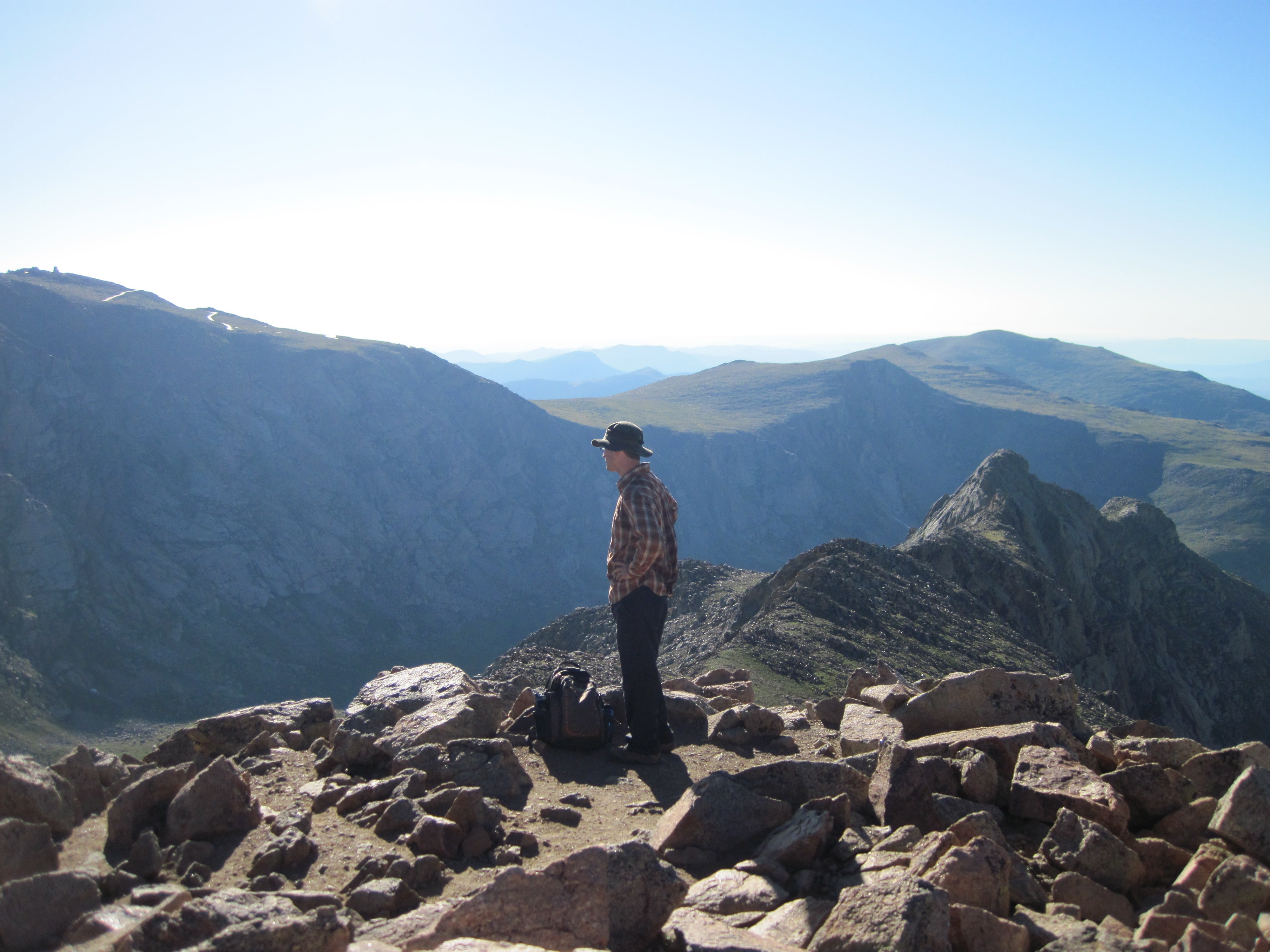Andrew Jones | Assistant Professor in the School of Public Health, Department of Human Nutrition & Sustainable Food Systems cluster hire
Dr. Andrew Jones has held many titles–geographer, filmmaker, pie-eating champ, researcher, professor, and now dad. Before the holidays, he took some time to tell us a little about each of these roles and how they have impacted his life and work.
Where did you grow up? I grew up in Pittsburgh, Pennsylvania.
What is your strongest food memory? My mother’s grandparents are from Lebanon. This meant we always had incredible Lebanese food at Christmas including kibbeh, tabbouleh, pita and grape leaves.
A more recent food memory is winning a pie eating contest at the UMSFP Harvest Festival. I ate a 2-pound apple pie in 8 minutes or so with just my face (no hands!).
 Have any particular authors, articles or documentaries had a significant impact on you? Which one(s)? The Control of Nature by John McPhee was the inspiration for my senior thesis as an undergraduate student at Penn State University. In my thesis, I combined my two majors, film production and geography, to produce a documentary film that examined why families choose to build homes and businesses in flood-prone regions. Understanding human interactions with the natural environment is still a fundamental motivation for my research today.
Have any particular authors, articles or documentaries had a significant impact on you? Which one(s)? The Control of Nature by John McPhee was the inspiration for my senior thesis as an undergraduate student at Penn State University. In my thesis, I combined my two majors, film production and geography, to produce a documentary film that examined why families choose to build homes and businesses in flood-prone regions. Understanding human interactions with the natural environment is still a fundamental motivation for my research today.
I also greatly admire the documentary filmmaker Errol Morris who is known for directing The Thin Blue Line, The Fog of War, The Unknown Known, among many other films.
What brought you to UM? I joined the School of Public Health at UM in September 2013. I was excited to have the opportunity to work with the world-class faculty in SPH and to engage closely with my cluster colleagues, as well as the faculty in the Sustainable Food Systems Initiative. Ann Arbor is also a great place to live and raise a family.
Tell us about your current research interests. I try to understand how agriculture and food systems influence household food security, and the nutrition and health status of women and children in low- and middle-income countries. Within that broader focus, I study how the diversity of farms and agricultural landscapes affects food access, the quality of diets and health outcomes among smallholder farmers. Agricultural biodiversity may have direct impacts on the diversity of diets, or could have more indirect effects on food security and health through livelihoods and agricultural management practices.
A large part of my work is also centered on the nutrition transition that is occurring in low- and middle-income countries. I’m especially interested in understanding how changes in markets and food environments may be increasing susceptibility to food insecurity, as well as driving changes in patterns of disease among low-income families on the peripheries of cities in these countries. I have ongoing funded research in Bolivia, Peru, Burkina Faso and India examining these questions. I also have collaborations in several other countries, as well as in Michigan.
Do you have any advice for students interested in food systems careers?The field of food systems is quite broad so it’s difficult to give a single piece of advice. However, I’d say it’s important that students gain some depth of expertise in a specific discipline, while ensuring that they engage with other fields so that they are able to understand the broader context of the problems they are addressing and speak the languages of their colleagues. Students working in food systems will likely work within interdisciplinary teams during their careers, so bringing a specific expertise while also being able to collaborate is extremely important.
How do you like to spend your time when you’re not researching/teaching/working? I love changing diapers (laughs). Outside of work I spend as much time as I can with my 7-month-olddaughter, Rumi. I also design tabletop games. Like Cones of Dunshire from Parks and Rec? My wife and friends have often compared me to Ben Wyatt from Parks and Recreation. I would never compare my games to the genius of the Cones of Dunshire, but let’s just say it’s what I aspire to.
What classes are you teaching next? In the Fall 2016 term, I’ll be teaching “NUTR 555: Foundations of Sustainable Food Systems” with my colleagues Jennifer Blesh in the School of Natural Resources and Environment and Lesli Hoey in the College of Architecture and Urban Planning. In the Winter 2017 term, I’ll be teaching “NUTR 633: Evaluation of Global Nutrition Programs” and I’m developing a new course on domestic and international food policy (NUTR 622) that I’m very excited about.



